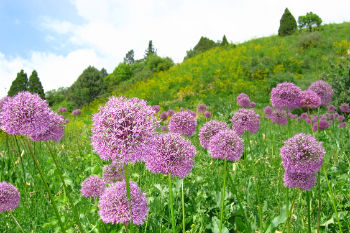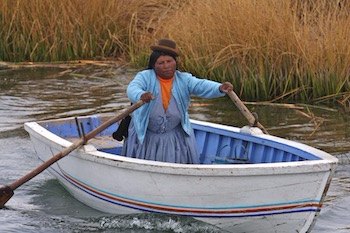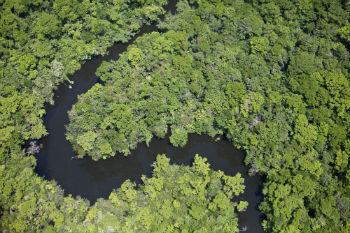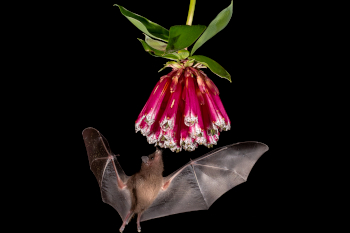Main menu
CEPF is a joint initiative of l’Agence Française de Développement, Conservation International, the European Union, Fondation Hans Wilsdorf, the Global Environment Facility, the Government of Japan and the World Bank.
Visitez le site français コア情報の日本語翻訳を読むOr use Google Translate to translate the English site to your language:
GTranslate
CEPF to Collaborate With Conservation International for GEF Small Grants Program
With Conservation International as a New Implementing Agency, CEPF Will Serve as Delivery Mechanism
08 January 2025
08 January 2025
The Critical Ecosystem Partnership Fund (CEPF) is proud to support Conservation International in its new role as an implementing agency for Global Environment Facility (GEF) Small Grants Program.
Since its inception in 2000, CEPF has been fortunate to list the GEF and Conservation International among its global donor partners—an assemblage of leaders in conservation funding that also includes l’Agence Française de Développement, the European Union, Fondation Hans Wilsdorf, the Government of Japan and the World Bank. Their support and guidance have enabled CEPF to provide more than US$300 million grants for biodiversity conservation and organizational capacity building to more than 2,700 civil-society grantees in 112 countries. (Learn more about CEPF's Impact.)
The new SGP reinforces already strong bonds among Conservation International, CEPF and the GEF in our shared mission to bring together diverse civil society stakeholders—including Indigenous peoples and local communities—to address pressing environmental challenges.
A New Phase Builds on GEF SGP Success
The GEF Small Grants Program is a flagship initiative that over the past three decades has enabled civil society organizations (CSOs) to access funding and technical assistance for community action related to the environment and sustainable livelihoods. It specifically supports Indigenous peoples and local communities, women-led initiatives, youth engagement and leadership, and persons with disabilities.
Following decades of leadership by the United Nations Development Programme as anchor agency, it has been expanded following a GEF Council decision two years ago to bring in two additional implementing entities: Conservation International and the UN Food and Agriculture Organization, alongside UNDP, to support locally led initiatives in developing countries. This wider remit is helping communities access additional funding, with more options for collaboration and the pooling of expertise, including through the technical knowhow offered by the various agencies.
Tapping a Legacy of Impact: CEPF's Role
At the heart of Conservation International's approach to the GEF SGP is the integration of lessons and expertise from CEPF. Since its inception in 2000, CEPF has been a game-changer in the global conservation landscape, supporting CSOs in conserving the world's biodiversity hotspots. Conservation International was a co-founder of CEPF, along with the GEF and the World Bank, and hosts the CEPF Secretariat.
CEPF’s well-established grant-making model emphasizes transparency, inclusivity and efficiency, and will be one delivery mechanism of the GEF SGP.
How CEPF will support and enhance GEF SGP
Biodiversity Hotspot Synergies
CEPF will build on its 25 years of experience in conserving biodiversity hotspots to be part of the successful implementation of GEF SGP. Conservation International’s GEF SGP grants will aim to capitalize on the methodology of CEPF grant-making, including using CEPF’s ecosystem profiles—stakeholder-driven analyses of the hotspots’ biodiversity and socio-economic conditions that serve as regional conservation strategies. This approach will ensure that grant-making priorities are demand-driven and contribute to global biodiversity goals.
Regional Implementation Teams (RITs)
CEPF’s hotspot-based RITs will play a crucial role in implementing GEF SGP. These teams will work directly with CSOs to facilitate grant-making, build local capacity and ensure projects align with both local and global conservation priorities. In countries where RITs are not present, CEPF’s Secretariat will support implementation through dedicated national coordinators.
Capacity Building and Pathways for Growth
CEPF’s approach, which combines biodiversity conservation with CSO capacity building, will be central to GEF SGP. Small grants will serve as entry points for local organizations, with targeted training and mentoring programs helping them develop the skills and networks needed to scale their impact. For many grantees, SGP will be a stepping stone to larger, long-term grants from public funders, creating a seamless pathway for growth.
Innovative Tools and Technology
CEPF’s grantee platform will serve as the backbone for managing GEF SGP grants. This system, available in local languages, will streamline application, reporting, and monitoring processes, ensuring accessibility for grassroots organizations.
Inclusive Grant-Making
CEPF has a proven track record of engaging women, youth, and marginalized groups in conservation. For GEF SGP, CEPF will establish a dedicated funding window for projects that are led by youth, apply socially inclusive practices, and ensure equitable access to grants for diverse stakeholders.
A Framework for Transformational Change
Through CEPF’s proven methodologies, Conservation International envisions GEF SGP as more than a funding mechanism—it will be a driver of transformational change. By supporting Indigenous peoples, local communities, women, and youth to lead, Conservation International will implement GEF SGP to tackle critical issues like ecosystem restoration, sustainable agriculture and low-carbon energy solutions.
RITs and national coordinators will act as catalysts, helping grantees connect with local governments, private sector stakeholders, and other CSOs to amplify their impact. CEPF’s emphasis on collaboration will foster networks of organizations capable of scaling solutions and influencing policy at national and regional levels.
CEPF has demonstrated how supporting women, youth, and marginalized communities leads to stronger, more sustainable outcomes. Whether it’s training Indigenous leaders to negotiate for their rights or developing conservation-compatible livelihoods for rural communities, Conservation International and CEPF want to ensure that the voices of those closest to nature are heard and valued.
“Conservation International is honored to bring its decades of experience in community-driven conservation to the GEF Small Grants Program as a new Implementing Agency,” says Orissa Samaroo, vice president of the CI-GEF Agency. “Through the CI-GEF Agency and the Critical Ecosystem Partnership Fund, we are excited to leverage our innovative and inclusive approaches to enhance this new phase of GEF SGP, ensuring it reaches the world’s most biodiverse and vulnerable regions while driving sustainable solutions that support those closest to nature.”
CEPF and Conservation International are working on the detailed design of the GEF SGP project, which will be initially implemented in five countries—Equatorial Guinea, Libya, Saint Vincent and the Grenadines, Sri Lanka, and Turkmenistan. This will be submitted to the GEF in the second half of 2025, with the intention of awarding the first small grants in early 2026.
The Road Ahead
The challenges of climate change, biodiversity loss and inequity require bold action and collaborative effort. With CEPF’s robust framework and decades of experience, GEF SGP will be an even more powerful tool for supporting communities, protecting biodiversity and advancing global sustainability goals.
Learn more about the GEF Small Grants Program.
Learn more about Conservation International's GEF Project Agency.






